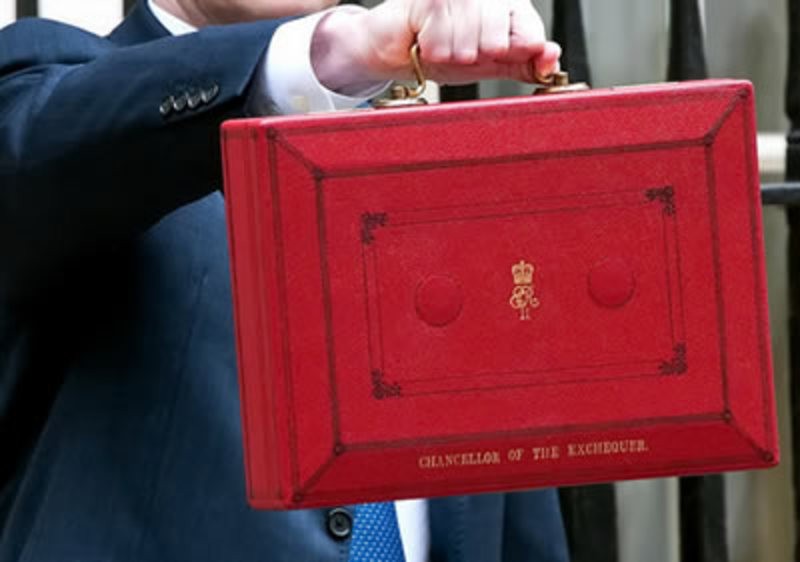The 2018 Budget For The Motorist
Published Date: 6th Nov 2018
Philip Hammond has delivered his 2018 budget and as you’d expect it was delivered with positive ‘sound-bytes’ designed to instil confidence amongst all of the uncertainty in the current BREXIT climate.
 Although Hammond's rhetoric may have been a little more cautious than some of the Prime Ministers recent comments like “austerity is over”. He preferred a slightly more cautious ‘austerity is coming to an end’ and stated “the economy was back on its feet again”.
Although Hammond's rhetoric may have been a little more cautious than some of the Prime Ministers recent comments like “austerity is over”. He preferred a slightly more cautious ‘austerity is coming to an end’ and stated “the economy was back on its feet again”.
Of course, there is still the prospect of a BREXIT ‘no deal’ in March 2019 when the UK’s official exit from Europe is scheduled, although indications are the government is confident this is an unlikely outcome. If, however a ‘no deal’ were to come to fruition the chancellor has indicated that a new, revised budget would need to be addressed as it would completely change the landscape.
So, what did the Budget Mean For Motorists?
Road Repairs & Maintenance
 The Chancellor has made a substantial commitment of funds for much-needed maintenance, repairs and upgrades to UK roads. The financial commitment is more than £28 billion over a fiver year period from 2020-2025. £25.5b will go to Highways England for running repairs and upgrades whilst a further £3.5 will be directed to local councils for what the chancellor described as major local routes.
The Chancellor has made a substantial commitment of funds for much-needed maintenance, repairs and upgrades to UK roads. The financial commitment is more than £28 billion over a fiver year period from 2020-2025. £25.5b will go to Highways England for running repairs and upgrades whilst a further £3.5 will be directed to local councils for what the chancellor described as major local routes.
In a more immediate response to the deteriorating condition of some local UK roads and the ever-increasing number of potholes, the chancellor committed an additional £420 million on top of the existing £300 million to local councils. The funds will be available with immediate effect to address damaged roads, bridges, road marking at junctions etc.
In order to expedite road repairs by local councils the government have set a deadline of April 2019 for use of the additional £420m.
Whilst the figures sound generous its thought in many quarters that’s it will only be enough to tackle less than 10% of the needed repairs, so councils will probably have to prioritise repairs.
Tax On Fuel
UK motorists saw some of the lowest fuel prices at the back-end of 2015 and early 2016 with unleaded petrol available for under £1 per litre for what seemed like a short-lived period. Since then we’ve seen prices creep back up and 2018 has seen the fastest increase in fuel prices for nearly 30 years.
 With the motorist already being hit hard with the high fuel prices in 2018, the Chancellor and government decided to freeze fuel duty, a move that is welcome although fuel duty in the UK is still significantly higher than most of our counterparts.
With the motorist already being hit hard with the high fuel prices in 2018, the Chancellor and government decided to freeze fuel duty, a move that is welcome although fuel duty in the UK is still significantly higher than most of our counterparts.
IPT (Insurance Premium Tax)
IPT or Insurance Premium Tax was introduced back in 1994 by the then Chancellor Kenneth Clarke, it was introduced to raise revenue from the insurance industry, which was at that time deemed by the government to be under-taxed.
IPT has been frozen (no increase to the current rate of 12%), although the insurance industry will be keen to point out that IPT duty has doubled over the last two years anyway. Amongst the hardest hit by IPT are young drivers who have recently passed their test. These young drivers pay a hefty price even with telematics or ‘black box’ insurance. Often their car insurance premium for the year can be more costly than their first car.
UK drivers should welcome the latest budget, although many will be quick to point out that we are heavily taxed anyway when compared to countries like the USA and Australia for example and the accelerated road repairs to UK roads are well overdue.
